#News Pakistan
Explore tagged Tumblr posts
Text
youtube
1 note
·
View note
Text
"With Donald Trump set to take office after a fear-mongering campaign that reignited concerns about his desire to become a dictator, a reasonable question comes up: Can nonviolent struggle defeat a tyrant?
There are many great resources that answer this question, but the one that’s been on my mind lately is the Global Nonviolent Action Database, or GNAD, built by the Peace Studies department at Swarthmore College. Freely accessible to the public, this database — which launched under my direction in 2011 — contains over 1,400 cases of nonviolent struggle from over a hundred countries, with more cases continually being added by student researchers.
At quick glance, the database details at least 40 cases of dictators who were overthrown by the use of nonviolent struggle, dating back to 1920. These cases — which include some of the largest nations in the world, spanning Europe, Asia, Africa and Latin America — contradict the widespread assumption that a dictator can only be overcome by violence. What’s more, in each of these cases, the dictator had the desire to stay, and possessed violent means for defense. Ultimately, though, they just couldn’t overcome the power of mass nonviolent struggle.
In a number of countries, the dictator had been embedded for years at the time they were pushed out. Egypt’s Hosni Mubarak, for example, had ruled for over 29 years. In the 1990s, citizens usually whispered his name for fear of reprisal. Mubarak legalized a “state of emergency,” which meant censorship, expanded police powers and limits on the news media. Later, he “loosened” his rule, putting only 10 times as many police as the number of protesters at each demonstration.
The GNAD case study describes how Egyptians grew their democracy movement despite repression, and finally won in 2011. However, gaining a measure of freedom doesn’t guarantee keeping it. As Egypt has shown in the years since, continued vigilance is needed, as is pro-active campaigning to deepen the degree of freedom won.
Some countries repeated the feat of nonviolently deposing a ruler: In Chile, the people nonviolently threw out a dictator in 1931 and then deposed a new dictator in 1988. South Koreans also did it twice, once in 1960 and again in 1987. (They also just stopped their current president from seizing dictatorial powers, but that’s not yet in the database.)
In each case people had to act without knowing what the reprisals would be...
It’s striking that in many of the cases I looked at, the movement avoided merely symbolic marches and rallies and instead focused on tactics that impose a cost on the regime. As Donald Trump wrestles to bring the armed forces under his control, for example, I can imagine picketing army recruiting offices with signs, “Don’t join a dictator’s army.”
Another important takeaway: Occasional actions that simply protest a particular policy or egregious action aren’t enough. They may relieve an individual’s conscience for a moment, but, ultimately, episodic actions, even large ones, don’t assert enough power. Over and over, the Global Nonviolent Action Database shows that positive results come from a series of escalating, connected actions called a campaign...
-via Waging Nonviolence, January 8, 2025. Article continues below.
East Germany’s peaceful revolution
When East Germans began their revolt against the German Democratic Republic in 1988, they knew that their dictatorship of 43 years was backed by the Soviet Union, which might stage a deadly invasion. They nevertheless acted for freedom, which they gained and kept.
Researcher Hanna King tells us that East Germans began their successful campaign in January 1988 by taking a traditional annual memorial march and turning it into a full-scale demonstration for human rights and democracy. They followed up by taking advantage of a weekly prayer for peace at a church in Leipzig to organize rallies and protests. Lutheran pastors helped protect the organizers from retaliation and groups in other cities began to stage their own “Monday night demonstrations.”
The few hundred initial protesters quickly became 70,000, then 120,000, then 320,000, all participating in the weekly demonstrations. Organizers published a pamphlet outlining their vision for a unified German democracy and turned it into a petition. Prisoners of conscience began hunger strikes in solidarity.
By November 1988, a million people gathered in East Berlin, chanting, singing and waving banners calling for the dictatorship’s end. The government, hoping to ease the pressure, announced the opening of the border to West Germany. Citizens took sledgehammers to the hated Berlin Wall and broke it down. Political officials resigned to protest the continued rigidity of the ruling party and the party itself disintegrated. By March 1990 — a bit over two years after the campaign was launched — the first multi-party, democratic elections were held.
Students lead the way in Pakistan
In Pakistan, it was university students (rather than religious clerics) who launched the 1968-69 uprising that forced Ayub Khan out of office after his decade as a dictator. Case researcher Aileen Eisenberg tells us that the campaign later required multiple sectors of society to join together to achieve critical mass, especially workers.
It was the students, though, who took the initiative — and the initial risks. In 1968, they declared that the government’s declaration of a “decade of development” was a fraud, protesting nonviolently in major cities. They sang and marched to their own song called “The Decade of Sadness.”
Police opened fire on one of the demonstrations, killing several students. In reaction the movement expanded, in numbers and demands. Boycotts grew, with masses of people refusing to pay the bus and railway fares on the government-run transportation system. Industrial workers joined the movement and practiced encirclement of factories and mills. An escalation of government repression followed, including more killings.
As the campaign expanded from urban to rural parts of Pakistan, the movement’s songs and political theater thrived. Khan responded with more violence, which intensified the determination among a critical mass of Pakistanis that it was time for him to go.
After months of growing direct action met by repressive violence, the army decided its own reputation was being degraded by their orders from the president, and they demanded his resignation. He complied and an election was scheduled for 1970 — the first since Pakistan’s independence in 1947.
Why use nonviolent struggle?
The campaigns in East Germany and Pakistan are typical of all 40 cases in their lack of a pacifist ideology, although some individuals active in the movements had that foundation. What the cases do seem to have in common is that the organizers saw the strategic value of nonviolent action, since they were up against an opponent likely to use violent repression. Their commitment to nonviolence would then rally the masses to their side.
That encourages me. There’s hardly time in the U.S. during Trump’s regime to convert enough people to an ideological commitment to nonviolence, but there is time to persuade people of the strategic value of a nonviolent discipline.
It’s striking that in many of the cases I looked at, the movement avoided merely symbolic marches and rallies and instead focused on tactics that impose a cost on the regime. As Donald Trump wrestles to bring the armed forces under his control, for example, I can imagine picketing army recruiting offices with signs, “Don’t join a dictator’s army.”
Another important takeaway: Occasional actions that simply protest a particular policy or egregious action aren’t enough. They may relieve an individual’s conscience for a moment, but, ultimately, episodic actions, even large ones, don’t assert enough power. Over and over, the Global Nonviolent Action Database shows that positive results come from a series of escalating, connected actions called a campaign — the importance of which is also outlined in my book “How We Win.”
As research seminar students at Swarthmore continue to wade through history finding new cases, they are digging up details on struggles that go beyond democracy. The 1,400 already-published cases include campaigns for furthering environmental justice, racial and economic justice, and more. They are a resource for tactical ideas and strategy considerations, encouraging us to remember that even long-established dictators have been stopped by the power of nonviolent campaigns.
-via Waging Nonviolence, January 8, 2025.
#Chile#Egypt#Germany#Pakistan#Protests#United States#us politics#fuck trump#authoritarianism#revolution#nonviolence#nonviolent resistance#protest#america#protests#democracy#elections#trump administration#good news#hope#hopepunk#hope posting
4K notes
·
View notes
Text
Prisoners take hearing aid from my wife, how will she hear, Shah Mahmood's dialogue with judge
Pakistan Tehreek-e-Insaf (PTI) leader Shah Mahmood Qureshi spoke to the judge during the hearing on the Tausha Khanah reference at Adiala jail, saying how will the jailers hear the device from my wife, how will she hear? The court ordered the prison authorities to return the hearing aid of the wife of Shah Mahmood Qureshi, after which the prison administration returned the hearing aid to the wife of Shah Mahmood Qureshi.
Read More https://worldtimenews123456.blogspot.com/2024/01/prisoners-take-hearing-aid-from-my-wife.html
0 notes
Text
THE STUDENTS OF BANGLADESH ARE DYING.
The so called students league called BCL or Bangladesh Chatro league, who are basically the rabid dogs of the rolling government of Bangladesh are attacking, assaulting and killing the students protesting against the Quota system that gives off government jobs for the children and grandchildren of freedom fighters of the liberation war. Our own prime minister called us rajakar (traitor who betrayed Bangladesh to Pakistan in 1971) and said anyone who isn't the child of declared freedom fighter is a child of a rajakar. So the students created a slogan "who am I? Who are you? Rajakar, rajakar!" Ignoring the irony of the slogan, the pm set her rabid dogs on the students, my people are dying because she (pm) refuses to let go of nepotism. We can't use our freedom of speech. Please help us.
Our Internet is being cut off, our accounts are being hacked, our electricity is said to be gone soon. SPREAD THE WORD.

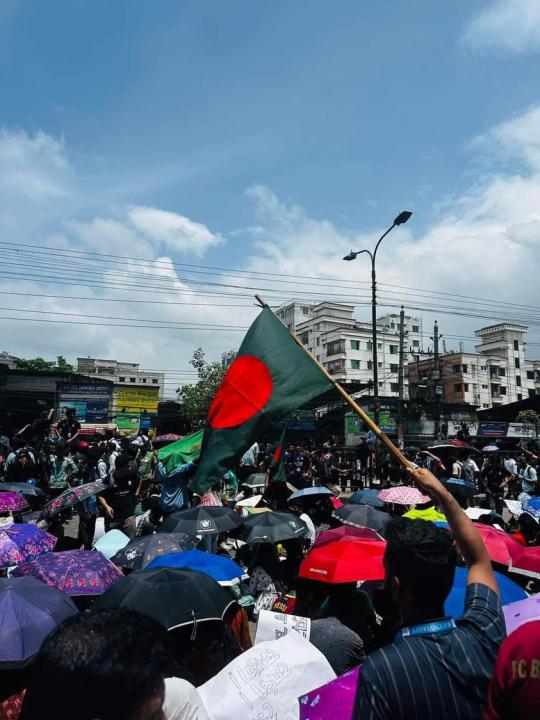








#bangladesh#desi#desiblr#international#news#from the river to the sea palestine will be free#palestine#all eyes on bangladesh#free congo#free sudan#bengali#west bengal#operation searchlight#banglablr#bangla#liberation war of 1971#infia#india#pakistan#quota movement#save bangladeshi students
333 notes
·
View notes
Text
Tunisia ⤵️
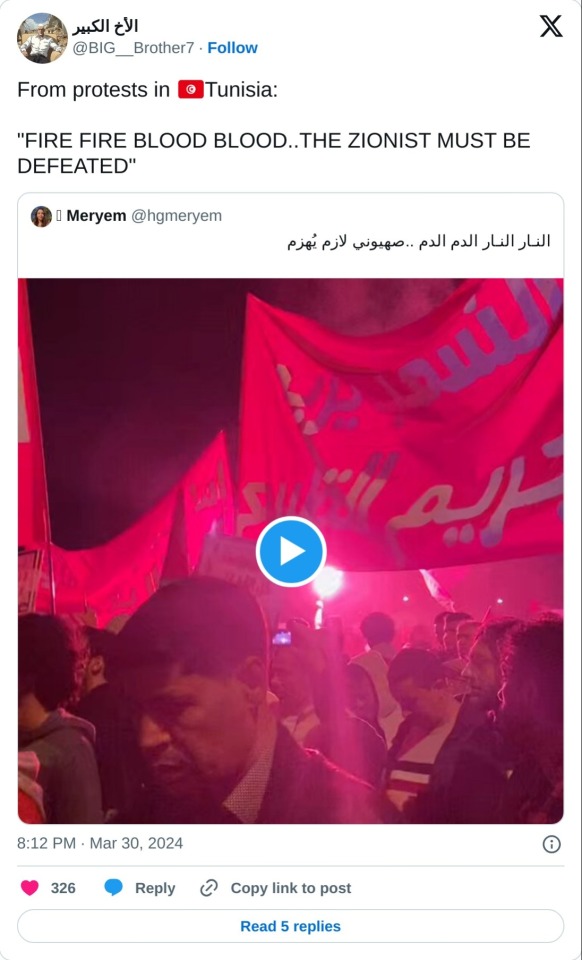
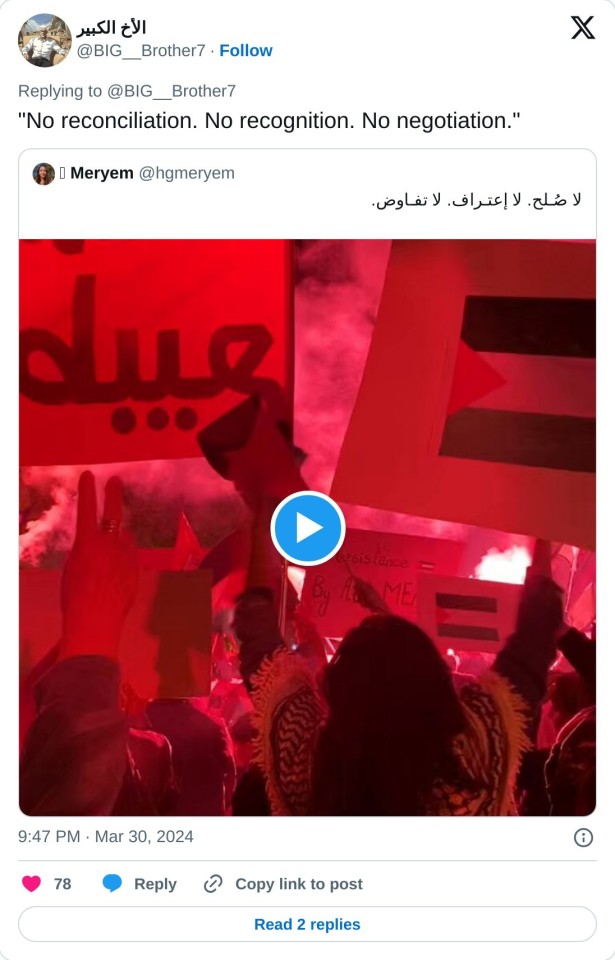
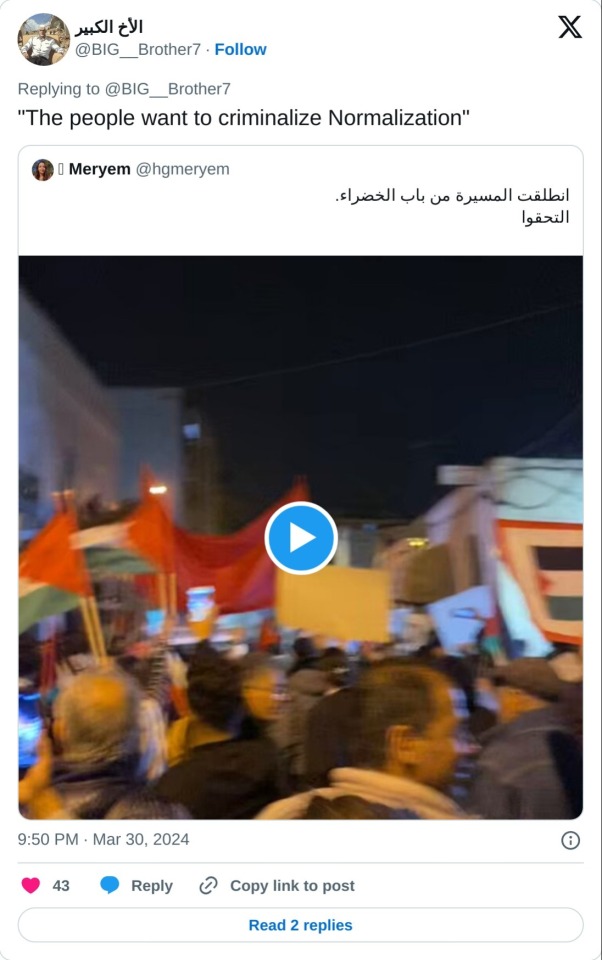
Jordan ⤵️

Iraq ⤵️
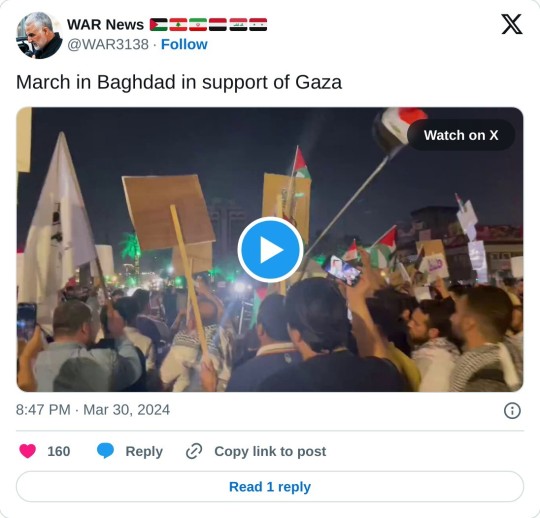
West Bank ⤵️
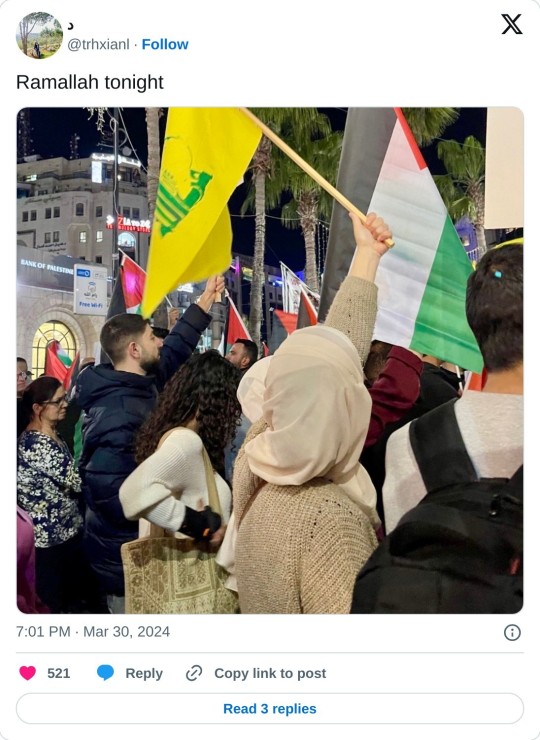
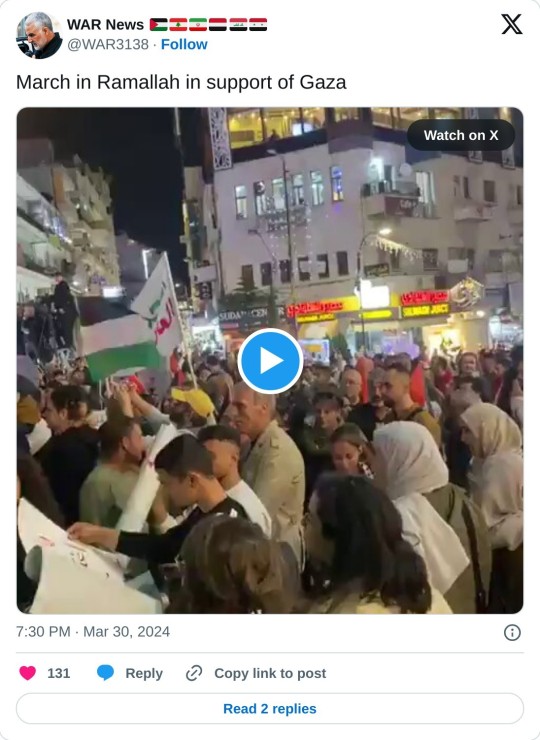
Pakistan ⤵️
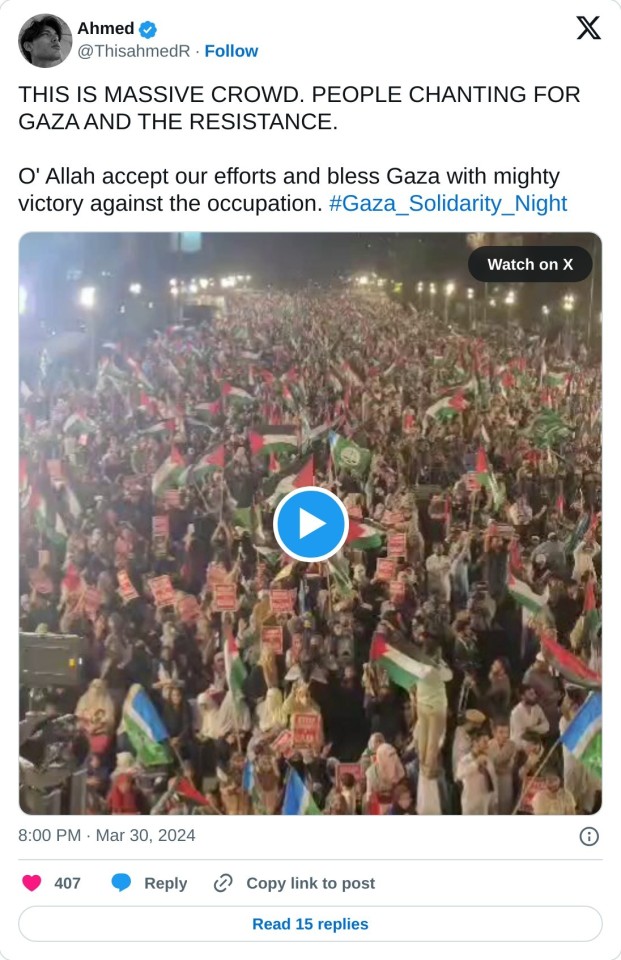
#yemen#jerusalem#tel aviv#current events#palestine#free palestine#gaza#free gaza#news on gaza#palestine news#news update#war news#war on gaza#iraq#tunisia#jordan#west bank#protests#pro palestine#pakistan#edited
402 notes
·
View notes
Text
"There is an eerie silence as one enters the lane leading up to Shahi Jama Masjid in Uttar Pradesh’s Sambhal city. Just a day before, the area was in shambles as local Muslims, protesting against a court-ordered survey of the mosque and a Hindutva mob shouting genocidal slogans, were fired upon by the Uttar Pradesh Police, killing five people."
https://maktoobmedia.com/india/forced-to-mourn-in-silence-muslim-families-bury-sons-in-sambhal-as-situation-remains-tense/
#american indian#indian#india travel#india vs pakistan#india tourism#india#class war#ausgov#politas#australia#Shahi Jama Masjid#Uttar Pradesh#sambhal news#sambhal violence#Sambhal#Muslims#protesting#keep protesting#mosque#hindutva#genocidal slogans#slogans#uttar pradesh police#auspol#tasgov#taspol#fuck neoliberals#neoliberal capitalism#anthony albanese#albanese government
52 notes
·
View notes
Text
Paul-Henri Nargolet was an experienced diver. He was 77. He was also a sad elderly widower who openly admitted he was sanguine about death. He know Oceangate was…questionable and a potential death trap. But he was fine with going out quick. He still let a 19 year old kid get on that death trap sub.
Stockton Rush is the obvious villain here.
But I have questions about Paul-Henri.
572 notes
·
View notes
Text
the 'we've [the CIA] been doing some hinky sh*t in Pakistan' to 'where were you the last six months?' 'i was. in Pakistan' pipeline cannot and must not be ignored like hey what the f*ck the comedic payout?????????
#tv: leverage#leverage#leverage s2#the beantown bailout job#local gay watches Leverage (or their first American series in fucking years and gets a shiny new OT3 to show for it).txt#Eliot f*cking Spencer sir. what were you doing in Pakistan. were you the hinky sh*t with the CIA sir
74 notes
·
View notes
Text
Recap of the 15th of November 2023.

For continuous updates while I'm gone, click the link below:
#free gaza#free palestine#gaza strip#irish solidarity with palestine#palestine#gaza#news on gaza#al jazeera#boycott israel#israel#Al-Shifa Hospital#Jerusalem#Yemen#Social justice#Pakistan#Quinn is ill tag
247 notes
·
View notes
Text
Pray for Pakistanis against their fascist army plz

27 notes
·
View notes
Text
Congratulations to all the teams for defeating the colonisers at their own game.

#cricket world cup 2023#cricket#indian cricket team#cwc23#cwc 2023#india#new zealand cricket#south africa#australia#Pakistan#afghanistan#netherlands#bangladesh#sri lanka#england#england cricket#afghanistan cricket#cricket world cup#colonialism#colonisers#colonizers#english cricket#a heartiest#fuck you#bcci#iccworldcup#icc#virat kohli#desi#desiblr
161 notes
·
View notes
Text
youtube
1 note
·
View note
Text
"In an effort to increase protection for trans people, a Pakistani business has launched a ride-share service that will be available only to women and trans people.
Called SheDrives, the service was launched last weekend [early September, 2024] and seeks to protect trans people from discrimination and harassment, says Ammaz Farooqi, the company’s chief executive.
It currently operates only in the second-largest city of Lahore, but Farooqi said that expansion is possible...
Gay sex is illegal in Pakistan and punishable by up to two years in prison, though it rarely is. Queerness is looked down upon, which makes being openly trans or gay difficult.
It is estimated that Lahore is home to around 30,000 transgender people, with organizations advocating for their welfare estimating the transgender population across Pakistan to be about 500,000 out of the country’s population of 240 million.
Farooqi himself is not transgender, but he sees his business as a way to help two marginalized communities: women and trans people.
“I’ve taken a small step, and we may expand this service to other cities,” he said.
He also said that “a unique aspect of this app and ride service is that both drivers and passengers will be women and transgender individuals.”"
-via LGBTQ Nation, September 11, 2024
#pakistan#lgbtq#lgbtq news#lahore#trans#transgender#ride share#women's issues#feminism#good news#hope
305 notes
·
View notes
Text
[...]
Ultimately, this story about Pakistan is more properly understood as one about the contest between China and the U.S. that pits the rest of the world in the middle. Chinese officials, we learned, regularly told their Pakistani counterparts that Beijing doesn’t see the contest as zero sum, that it’s okay to be friendly with both major powers. The U.S. does not quite see it that way, and Pakistan knows it. The result is the story below. If you’re at all interested in foreign affairs, we think you’ll find this one enlightening.
[...]
In October of 2022, a pivotal year for Pakistan, military chief Qamar Javed Bajwa finally won what he had long been striving for: an official state trip to the United States. His mission was explicit; a document prepared for Bajwa ahead of the visit is titled, “U.S. Re-Engagement with Pakistan: Ideas for Reviving an Important Relationship.”
[...]
From New York, Munir Akram, Pakistan’s representative to the United Nations, began reporting back cables highlighting “sarcastic” comments from his Chinese counterpart, who openly tweaked Akram about Pakistan’s sudden swing toward Washington. In private conversations with their Pakistani counterparts over the past year, as reported by Pakistani diplomats, Chinese officials have expressed displeasure with Islamabad for “switching camps”—rather than merely seeking open relations with both countries.
Now, with their U.S. gamble failing to pay off, Pakistani officials have become increasingly frantic in their efforts to repair relations with China, including, asthe documents reveal, by granting China approval for a military base at the port of Gwadar—a major and longstanding strategic demand of Beijing—and authorizing joint military operations inside Pakistan.
[...]
Internal reports emphasize Pakistan’s wish that its relations with the U.S. and China not be “zero-sum.” “What the Pakistani military prefers is to be able to maintain a balance between their Chinese and U.S. military relationships,” said Adam Weinstein, deputy director of the Middle East program at the Quincy Institute and an analyst on Pakistan. “They believe that if things are balanced, both sides will have an incentive to keep relations strong.”
Despite this preference, a classified internal Pakistani intelligence assessment judges China to be a more “natural strategic ally” than the U.S., with whom Pakistan is deemed to share “limited” strategic interests.
Facing such loss of trust from a key ally, the documents also show that Pakistan’s military-backed government privately promised Beijing a long-coveted concession: a Chinese military base in the key port city of Gwadar. Gwadar is a key node in China’s Belt-and-Road Initiative—the last stop in a land corridor through Pakistan that would connect China’s economy westward, and make it less reliant on shipping transit in the South China Sea.
In return, Pakistan asked for a major upgrade in economic and military assistance from Beijing in order to insulate Islamabad from the fierce reaction from the U.S. such a deal is expected to provoke.
[...]
This August, Pakistani government sources vented frustration to the media over their failed reconciliation with the U.S., lamenting the meager benefits that mending ties had brought. Government sources told the Express Tribune that “Pakistan’s reliance on the United States to secure the IMF package was not yielding the results.” This week, the IMF announced a decision to consider Pakistan’s loan request at an upcoming meeting slated for September 25, raising hopes that a deal may still be secured.
Pakistan’s private concessions to China come as the U.S. State Department has continued to publicly defend the military regime from criticism over its role in rigging elections this February, gross human rights abuses inside the country targeting the press and civil society, and an ongoing crackdown on supporters of now-imprisoned former Prime Minister Khan. That crackdown now includes credible threats to Khan’s life, as he continues to be held in government custody despite repeated rejection by the courts of the charges against him.
“We believe good governance, long-term capacity building, and sustainable market-based approaches that let the private sector flourish are the best paths to sustained growth and development,” the State Department told Drop Site News in its post-publication statement. “Our partnership with Pakistan spans the full range of regional and bilateral issues, including increasing trade and investment, strengthening security cooperation, promoting regional security and stability, building climate resilience, supporting democracy and human rights, and expanding people-to-people ties.”
The rigging of elections this February was met with general indifference in Washington, as has the ongoing suppression of press and political activism in the country. On the economic front, Pakistan’s imploding economy has consumed Western aid with nothing to show for it but soaring inflation, blackouts, an internet slowed to a crawl, and joblessness.
18 Sept 2024
28 notes
·
View notes
Text
If you cannot see your Bangladeshi moots online today it's because the government shut off the internet and call lines amidst the violence they are enacting upon their own student protests. I personally haven't been able to contact my family and friends back home for more than 10 hours.
#bangladesh#desi#desiblr#bengali#india#from the river to the sea palestine will be free#pakistan#west bengal#banglablr#bangla news#bangla#bangla blockade#savethestudents#save dhaka#bangladesh students#palestine#world news#international news#quota movement
78 notes
·
View notes
Text
Ten years ago, musician Usman Riaz grabbed a pencil and started to sketch.
He might have hoped, but didn't know at the time, that it would start him on a path to making history.
That initial drawing became The Glassworker - Pakistan's first ever hand-drawn animated feature film.
It follows the story of young Vincent and his father Tomas, who run a glass workshop, and a war that threatens to upend their lives.
Vincent's relationship with violinist Alliz, the daughter of a military colonel, begins to test the bond between father and son.
Usman tells BBC Asian Network the characters ultimately come to learn "that life is beautiful but fragile, like glass”.
He describes The Glassworker as an "anti-war film" set in an ambiguous and fantastical world that takes inspiration from his home country.
“I wanted to tackle issues and themes that would have been difficult to tackle if it was based in Pakistan," he says.
The country doesn't have the thriving film industry of neighbouring India and there is no government support or incentive for budding creatives like Usman.
So The Glassworker was a passion project, he says.
“These 10 years for me have just been purely driven with passion and obsession.
“Since I was a child, I have loved hand-drawn animation and there's something so magical about it.
"The beauty of the lines drawn and painted by the human hand always resonated with me.”
Usman says he travelled the world looking for mentors and his search took him to Japanese animation house Studio Ghibli.
The influence of the Oscar-winning artists behind classics such as Spirited Away and Princess Mononoke can be seen in The Glassworker's own style.
Usman says the industry veterans at Ghibli were also the ones who encouraged him to start the production himself.
After raising $116,000 through a 2016 crowdfunding campaign he founded his own studio, Mano Animations.
From there it's been a painstaking process, especially since full production started in 2019.
“What you are watching is essentially a moving painting,” says Usman.
“Every single frame you see, whether it's a background or the character moving, it's all drawn by hand.”
Usman says that, so far, he hasn't made any money from the project and has been unable to pay his wife Maryam and cousin Khizer, who he recruited to help him.
But there's hope that the labour of love could be the start of something bigger.

Usman Riaz says he's always been a fan of animation
Sharmeen Obaid Chinoy is another experienced industry figure Usman turned to for advice about getting The Glassworker off the ground.
She directed 3 Bahadur, a computer-generated tale that was Pakistan's first-ever animated feature film.
On its 2015 release it broke box office records, even surpassing US imports and dethroning previous record-holder Rio 2.
Her studio was also the country's first female-led animation studio, and she understands the challenges of getting started better than most.
“Everything in Pakistan is driven by passion” she says. “I had to run pillar to post.
“We're a country that has limited access to electricity and our industry is heavily taxed.
"We're unable to import computers and hardware needed for animation.”
But Sharmeen – who is going to direct upcoming Star Wars film New Jedi Order – says The Glassworker could be a “monumental step” for Pakistan’s animation scene.
If it finds commercial success, she believes it will “ignite” something in the country, but there are barriers to home-grown animation becoming a red-hot trend.

The Glassworker is partly about the romance between characters Vincent and Alliz
Arafat Mazhar from Lahore-based Puffball animation agrees that “the technical skills are already there” in Pakistan despite there being “no formal training or schools available”.
But “how do you not censor yourself?” he asks.
It's a question facing any Pakistani filmmaker who has to deal with its strict board of film censors.
“Every time there's a good film that comes out that's sincere, the state ends up censoring it,” says Arafat.
He doesn't believe the rules are likely to relax soon.
Akira Toriyama: Fans reflect on Dragon Ball creator's legacy
Stranger Things season five teaser excites fans
Is Hollywood finally doing anime right?
Sharmeen agrees the government will only encourage the domestic film industry to grow if they work to "provide opportunity to create a level playing field for us to compete with the rest of the world".
“There is a lot of scope in Pakistan for animation," she says. "We've just never been given the opportunity to create it."
She shares Arafat's pessimism about the pace of change.
"Unfortunately, it will just be a few filmmakers who have that passion, who will continue to create films," she says.
But Sharmeen says she is eager to see how the world embraces The Glassworker.
"I know that there is so much in there that will touch people's hearts," she says.

Usman says The Glassworker has an anti-war message
Usman will finally get to find out how audiences react to the work he's spent 10 years pouring his energy into as The Glassworker goes on general release.
He says he hopes to “put Pakistan on the map” and show it can stand up to the giants across the border in Bollywood.
But he admits the process has been “gruelling”.
“It is extremely difficult, but we've done something nobody has ever done in the country before," he says.
"I think we've created something special that can stand toe-to-toe with the rest of the animation produced in the world.”
Listen to Ankur Desai's show on BBC Asian Network live from 15:00-18:00 Monday to Thursday - or listen back here.
35 notes
·
View notes